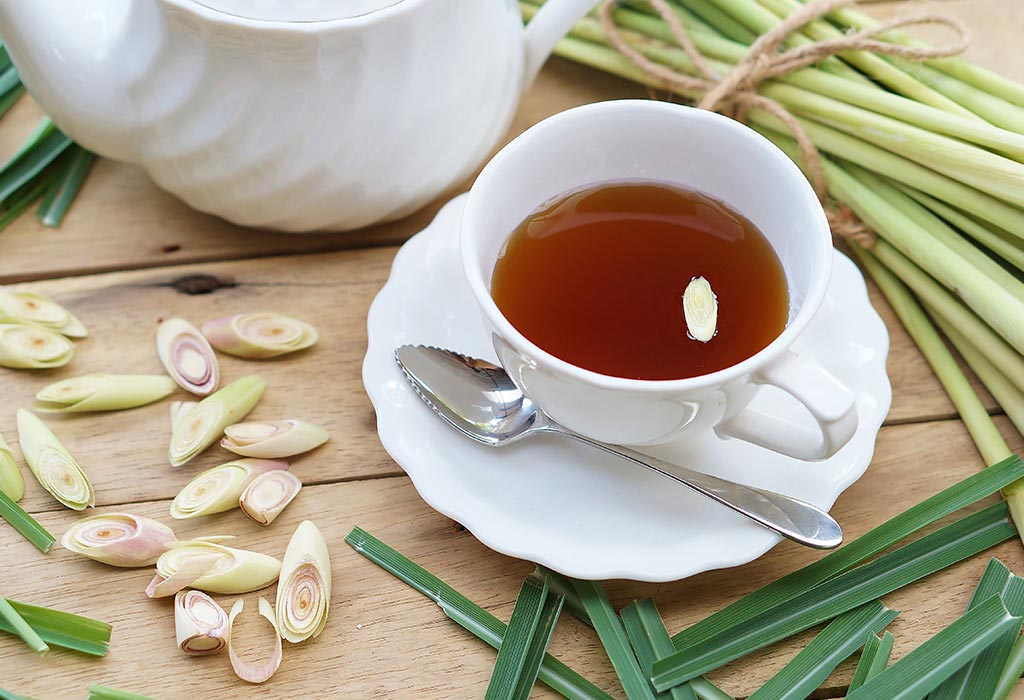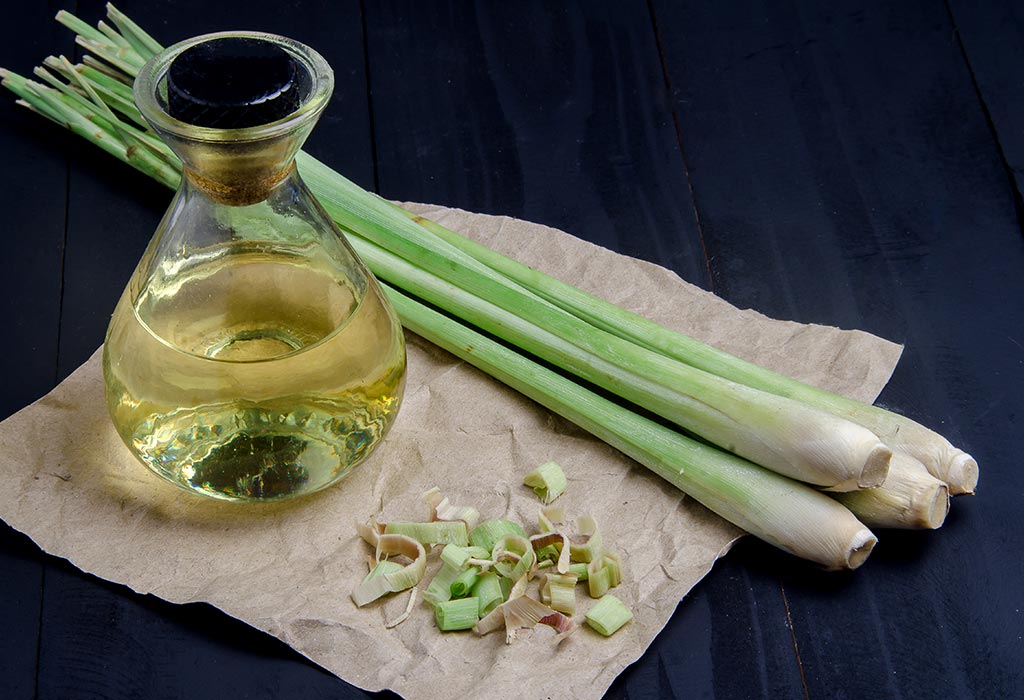In this Article
The food you eat determines your health. What you eat matters, and it matters even more if you are expecting a child. If you are pregnant, your diet must have changed for the good and you must be thinking twice before putting anything in your mouth. There are certain foods that help in the growth and development of the baby, but then there are other foods (herbs and supplements too) that can be detrimental for the health of your baby and should be strictly avoided. Today we will talk about one particular herb – lemongrass. Read on to know whether or not it is safe to consume lemongrass during pregnancy.
What Is Lemongrass?
Lemongrass, also known as citronella, is a plant that can grow up to 2 meters. It is native to Africa, Asia and Australia. Lemongrass is used as a herb in cooking and its leaves and oil are used to make medicine.
Many people associate ‘lemongrass’ with ‘tea.’ However, it is used as an ingredient in food preparations, for its antibacterial and preservative properties, as well as for its fresh lemony taste that it imparts to the food.
Lemongrass is also used as an astringent and is widely used in skincare products.
Is It Safe to Consume Lemongrass During Pregnancy?
Lemongrass should not be consumed during pregnancy as the two compounds found in lemongrass, namely, citral and mycrene can have adverse effects on pregnancy. Mycrene, when consumed in high doses, can hamper the skeletal development of the foetus and even result in a miscarriage.
Intake of lemongrass in concentrated forms such as lemongrass tea or supplements can lead to severe complications during pregnancy. Lemongrass can be consumed in small amounts, such as in Thai dishes, where it is used as a seasoning, but it is best avoided altogether.

Possible Side Effects of Lemongrass in Pregnancy
Consuming lemongrass during pregnancy may have harmful effects but its effects have not been empirically studied on humans. The advice to avoid lemongrass in high doses is based on logical conjecture and also on studies done on rats.
Effects on the Foetus
- Lemongrass extracts can fasten cell-death and hamper cell multiplication causing poor growth.
- Lemongrass can cause skeletal abnormalities.
- It could result in stillbirth.
Effects on the Mother
- Lemongrass has long been used in herbal medicine to bring on menstruation. In large quantities, it could induce the rupture of the foetal membrane, causing a miscarriage.
- Lemongrass affects blood sugar regulation. If the woman has type 2 diabetes or gestational diabetes, and she takes too much lemongrass, it could lead to a sudden decrease in her blood sugar levels, which can cause tiredness, blurry vision and even dizziness.
- Lemongrass could trigger mild allergic effects including swelling in the throat, rashes, and chest pain.
Alternatives to Lemongrass Tea
As mentioned earlier, lemongrass tea in concentrated forms can lead to severe complications in pregnancy. So if you are pregnant and routinely consuming lemongrass tea, it would be wise to substitute it with other kinds of teas that are safe during pregnancy. We suggest the following two alternatives:
-
Ginger Tea: It boosts immunity, aids digestion, and helps alleviate morning sickness in pregnant women.
-
Raspberry Tea: It is made from the leaves of the red raspberry bush. It is traditionally recommended during pregnancy. However, scientific research on the subject is limited. It supposedly helps improve the health of the uterus and prevents both premature and overdue births and other complications during pregnancy and childbirth.
To substitute the taste of lemongrass, the following would make the best additions to your herbal tea:
-
Lemon Zest: The easiest and possibly a suitable replacement for the flavour of lemongrass is zest or lemon. For a closer replication of the taste, mix one teaspoon of lemon zest with a paste of one arugula leaf and use it in your tea.
-
Kaffir Lime Leaves: The aroma of kaffir leaves is similar to that of lemongrass. Crush the leaves to make a paste and mix it with lime zest and lime juice.
Is It Safe to Use Lemongrass Oil While Pregnant?
Using lemongrass oil for massaging the skin or as incense for aromatherapy is not strictly prohibited, but it is best avoided. Essential oils work by being absorbed into the skin when used for massage. As the molecules in essential oils are quite small, the fear is that they may cross the placenta and enter the baby’s circulation system.
Essential oils are also very concentrated, so it is best to avoid using them during pregnancy. If you do want to use lemongrass oil, it is suggested that you dilute it with a carrier oil or water.

Risks of Using Lemongrass Oil
Lemongrass oil may lead to the following health complications if you are allergic to it. Even if you are not allergic to it, you may notice the following symptoms.
- Skin irritation
- Burning sensation
- Development of rashes (hives)
Things to Remember
Here are some points you should remember if you are planning to use lemongrass (in any form) during pregnancy.
- Before using lemongrass oil for pain, do a skin patch test to determine whether you are allergic to it or not.
- Lemongrass oil or any other essential oil should always be diluted with other carrier oils otherwise it may burn the skin.
- If you have diabetes or low blood sugar, do not drink lemongrass tea as it may lower your glucose levels.
- Since the effects of lemongrass are the strongest on the liver and kidneys, one should always consult a doctor before consuming any lemongrass products. If you suffer from liver or kidney-related illnesses or have suffered from it in the past, it is best avoided.
Lemongrass is a potentially harmful agent during pregnancy, and the easiest rule to follow is to avoid it altogether. In case you want to use it during pregnancy, you must check with your doctor.









